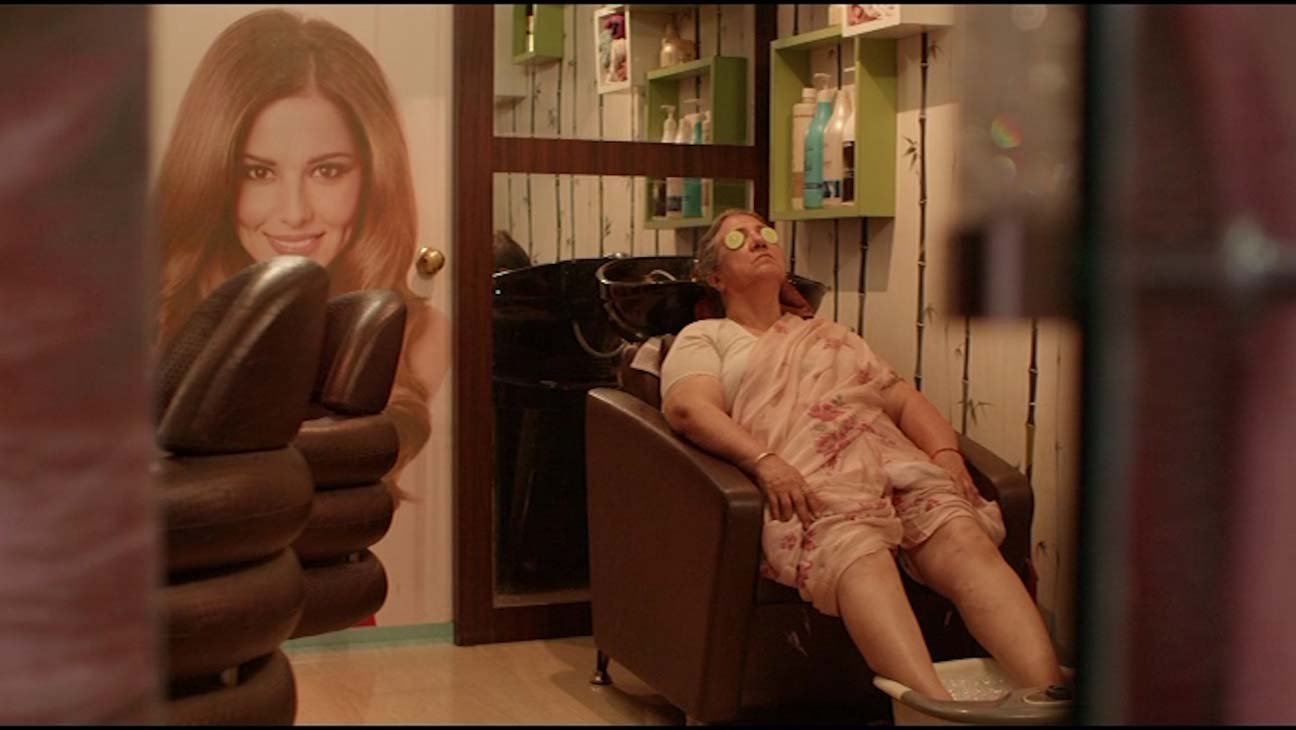Chantal Akerman, during one of her confrontation with the media, tore apart the allegations that were mounting about the dull and ‘unattractive’ visuals of Jeanne Dielman by stating the hitherto existing hierarchy and fetishization of images of guns, violence, exotic locations, or anything which is outside the bounds of household activities. Her point was to put forward and reveal the dissociation of pleasure from the images that show women doing the daily chores or, in short, her worldview. It is interesting that ‘Just Like That (Aise Hee)’ reminded me of Akerman’s argument even though the films belong to two different contexts.
What makes Just Like That (Aise Hee) unique and exciting for me is how the debutant director Kislay’s lens has captured the visuals of the film. As I can figure out, with the recent surge of films telling the stories of ‘small town’ lives in Bollywood, it has now become exceedingly rare to see the images of a middle-class life that can actually be identified with the life in a small town or, city. Hence, in the middle of a phenomenon of presenting a fabricated reality of small-town lives, Kislay’s debut venture tears apart that structure as it lays bare the ‘unattractive’ reality of that small-town existence on the silver screen.
Similar to Just Like That (Aise Hee) –
The film presents the life of a family living in Allahabad, now to be called Prayagraj. Mrs. Sharma (Mohini Sharma) becomes the focal point in the beginning as she decides to start living for herself after the demise of her husband. Her daily walks to shopping malls, parlors, eating ice creams and learning embroidery from a Muslim tailor in the neighborhood. This does not fit well with the rest of the family because it is expected of her to behave like a good widow. However, as the film progresses the treatment shifts and the centrality of narrative possessed by Mrs. Sharma gets diffused into other characters.

Virendra (Harish Khanna) is struggling with getting permanency in his job while his wife Sonia (Sadhna Singh) is stuck in a bleak cycle of homemaking. The siblings Vinni (Saumya Jhakmola) and Vinay (Shivam Sharma) are oblivious to the limited finances of the house and are busy exploring their own pleasures.
With the presence of multiple characters, it is satisfying to see that Kislay’s direction does not dwell in the could-have-been dramatic points of the narrative but rather his camera lurks back in the distance and observes all the things unfolding in front of it. For instance, Sonia while dishwashing a huge chunk of leftovers starts crying abruptly as Vinni does not show any empathy towards her. The camera captures this very private moment of her as the viewer feels the bleakness and alienation and this is probably the biggest triumph of this film.
The recurring presence of images of construction work bulldozed houses, and big bridges act as a motif of modernity hitting the city. However, the constant tussle between the temporality of then and now witnessed by the city and characters becomes prominent with the use of old photographs in the middle of narrative accompanied by Schubert in Minor C. Photographs are proof of something which used to exist but does not anymore. An event that was real but can now only be accessed through a piece of paper or a thing that is in front of the eyes but is not tangible anymore. As if it was just a memory. Inserting the old photographs of the characters in their cheerful moments accentuates the alienating effect of modern life and the after taste of its lived experience.
Also, Read – 25 Must-See Films at the JIO MAMI Mumbai Film Festival, 2019
Just Like That (Aise Hee) is an intimate film that provides a window into the lives of people living within the invisible oppressive regimes and with the deployment of Ceylanesque languorous pacing, it invites the viewers to dwell into a more self-reflective zone by the time film ends. The ending of the film shows no major transformation or, story arc development but is left on a mode where the film is in search of the meaning of liberation and the ways to achieve it.


